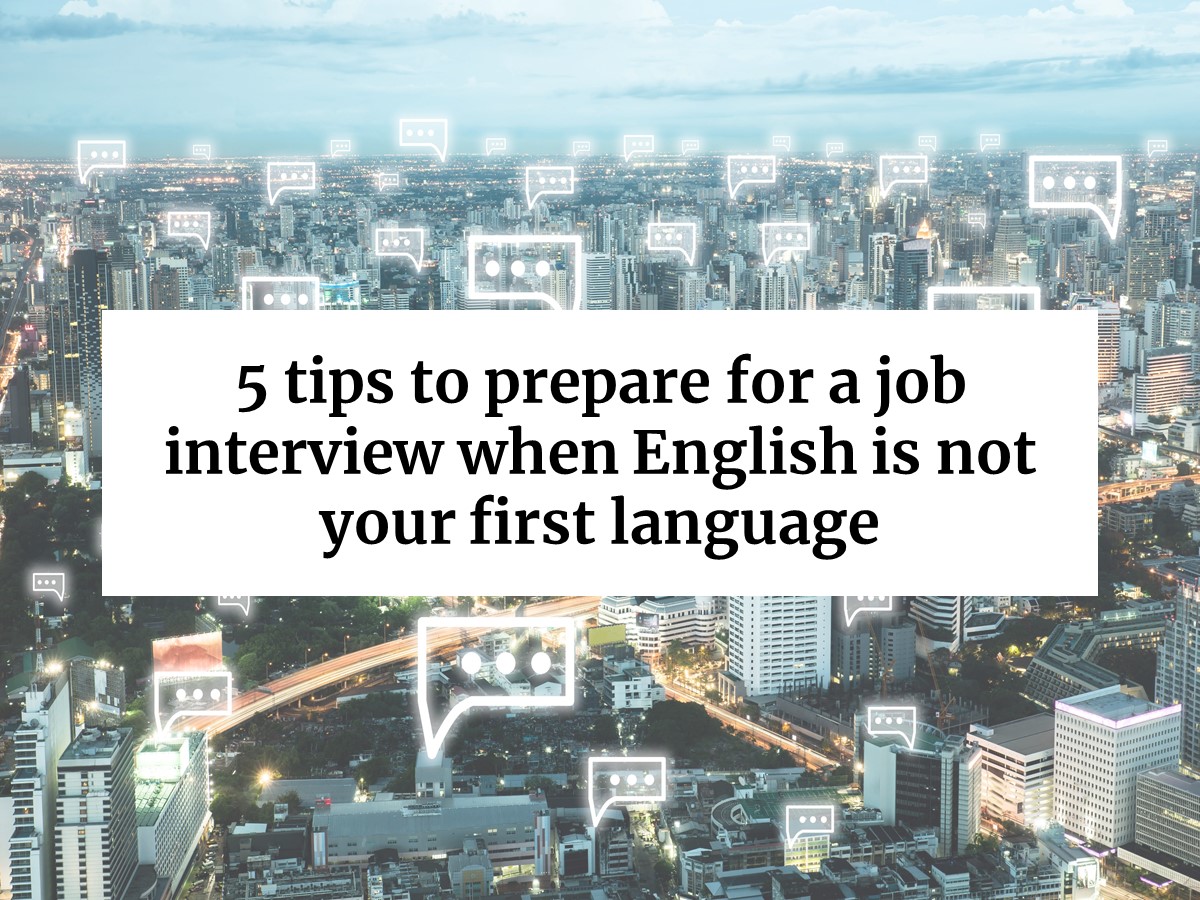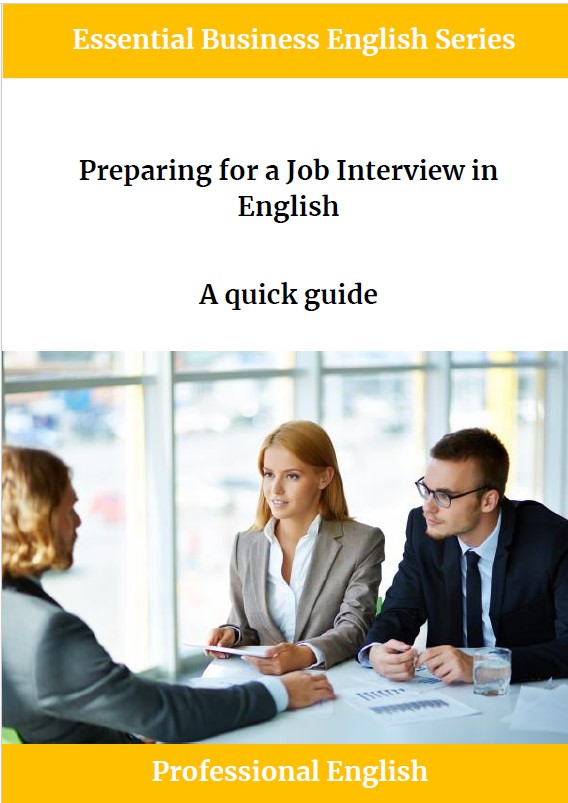Preparing for a job interview in English when English is not your mother tongue isn’t so much different from preparing for a regular job interview. You have to go through all the same steps as you normally would. However, you should do it entirely in English. This will help you familiarise yourself with the company, as well as, learn the requisite vocabulary and expressions to talk about your job and your professional experience. This is sort of a no-brainer. However, check if the company has an English language website. If it does, read through the site in English. Take a notebook and jot down all the important words, expressions and even sentences you can find in English. Look up the translations, write the meaning down in your notebook. And here comes the tricky part: try to memorise as many as possible. The chances are that words that are directly related to your profession will be essential for you, therefore, you should remember them well and should also try to practice saying them and using them in a sentence. Meanwhile, words that are not directly connected to your job are nice to know but may not be necessary during the interview. While you are researching the organisation, write down any questions you would like to ask the interviewers. It’s ok to write them in your own language first if it makes you feel more comfortable, but I believe that it is much easier if you formulate your questions in English from the start because you will get into the habit of thinking in English and using the language. This will help you become more confident and more comfortable working in English. Although job interviews can vary in style and content, an interview day always has the same main steps. This is reassuring to know because it can help us prepare for the different steps. The first major step of the day will be to introduce yourself, probably twice. First, when you arrive to the location, it is very likely that you will have to speak either to a receptionist or to a meet-and-greet person and you will have to say who you are, why you are there, and who you are looking for. It’s very repetitive, don’t worry about using the same expressions two or three times. Most interviewers start by asking the candidate to talk about themselves. The first question is usually a more general “Tell me about yourself” question. The second is a more specific enquiry about your strengths and weaknesses. Two very useful documents that you can use in your preparation for these questions are the job advertisement and the person specifications. If possible, try to have them in English because these documents can provide you with ample vocabulary. The job description and the person specification are closely related and show what type of qualifications, skills and abilities the company is looking for. They will also tell you what type of experience you must possess. Look at the words carefully and identify the adjectives and the verbs. The adjectives describe the abilities and/or skills required and the verbs will help you describe your professional experience and accomplishments. HR specialists recommend the use of active (or action) verbs. Actions verbs help to describe the various actions that you have done in your previous positions, they help to show your achievements with an impact. For example, instead of saying “I did…..” or “I worked on ….”, say “I evaluated…”, “I designed …”, “I monitored …”. Each and every interview is unique, however, it is possible to anticipate and plan ahead for most of the questions. There are many good websites that can give you tips on the most common interview questions and how to answer them. Although it is tempting to look at websites in your own language, it isn’t going to be very useful for you, so, please, do your research and formulate your own answers in English. Practice makes perfect. Once you have done all the language preparations and have thought about all the potential questions and how you would answer them, try to role play the interview with a friend or with your teacher. If you don’t have anyone to practice with, record yourself on your phone. It is very important to practice answering loud so that you can connect your brain (memory) and your voice (mouth and ears). Listen to your recording and see if you can understand yourself. It is surprisingly easy to spot our own mistakes on a recording. If you are not sure about how to pronounce a word, check the word in on of the online talking dictionaries. Preparing for a job interview takes time and effort. However, remember that you don’t have to sound like a perfect native speaker of English. Being multilingual is a major asset in the workplace and it is an ability that can set you apart from other applicants.Tip #1 Do it in English
Tip #2 Research the organisation
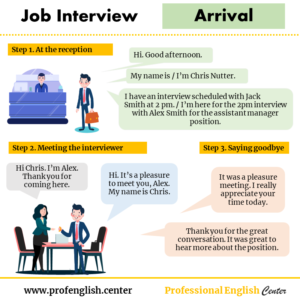 Tip #3 Prepare for the day
Tip #3 Prepare for the dayTip #4 Tell me about yourself
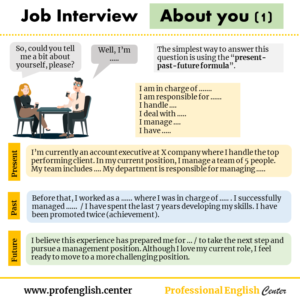
Tip #5 Prepare and practice your responses
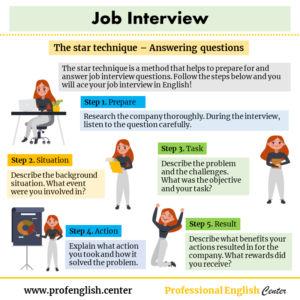
Do you find it difficult to know what to say in a job interview English?
I have prepared this no-nonsense guide to job interview language in English for professionals just like you!
Download my guide to Preparing for a Job Interview in English on the link below.

